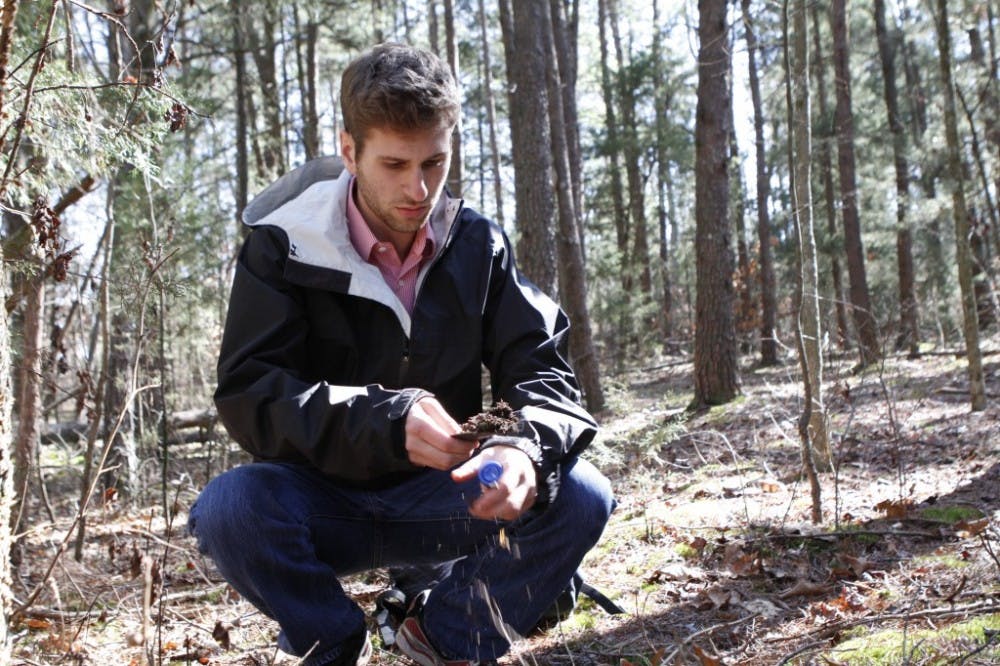Since its opening in October 2010, the 56 acres of land north of University Drive on Power Line Drive, officially preserved by the Board of Trustees as the Elon University Forest, has gradually become a place where classes can go to experience the outdoors. Although classes in a variety of departments have gone to the forest for research, the total number of classes that have been able to use the forest has been limited. There is a distinct reason for this limitation, according to Jeffrey Coker, chair of the Elon University Forest Advisory Committee and director of general studies.
“You’ve got this great resource and it’s tempting to just say, ‘Okay!’ and open the floodgate and have everybody rush out there and do things,” Coker said. “Because of what (Elon Forest) is supposed to be, we want Elon students 100 years from now, 200 years from now to have access to natural ecosystems to be able to study and reflect and for that to be part of campus, and so we don’t want to mess it up.”
This past semester, President Leo Lambert appointed the Elon University Forest Advisory Committee to come up with a plan for managing the forest as a resource for students. Coker said the committee hopes to have a management plan in place by the end of the year so the committee can begin advertising the forest. The plan will make the forest rules clearer to students and faculty and let people know how and when they can go to the forest.
“It’s a really interesting and unique challenge for Elon, because what Elon is really good at is changing and getting better all the time,” Coker said. “Well, this is kind of the opposite challenge. We kind of want this to stay the same — we don’t want to overrun it. The whole point is that it be an example of a sustainable ecosystem in an otherwise suburban area, so it’s a different type of management style.”
Antonio Izzo, assistant professor of biology, and two of his research students, visited the forest last week.
“There are so many benefits in general of having forest conserved,” Izzo said. “But specifically in regards to research, having a site that you know will not be disturbed, will not disappear suddenly to developing is really important. What’s really neat about having this plot of land out there is that it gives us something that we can build on for the long-term.”
Gerald Whittington, senior vice president for Business, Finance and Technology, said the forest has not cost the university a great sum of money because of its purpose as a preserve. For this reason, Tom Flood, director of landscaping and grounds and a member of the Elon University Forest Advisory Committee, said physical plant has not had to do much to maintain the land because they do not want to disturb the natural wildlife.
Coker said he sees the possibility for expanding the forest in the future.
“In the longer term, I think a lot of people hope that this could expand, that Elon University Forest could be bigger,” Coker said. “Not only is (having the forest as a resource) worth it, but it would be to the university’s advantage and would have huge educational benefits to even go in further.”


